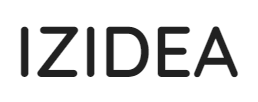Book Review: Algocracie
“Algocracy” is a captivating book written by Iyad Rahwan, first published in 2023. The book delves into how algorithms are shaping our modern societies, significantly influencing our decisions, jobs, and even our political systems. Rahwan brilliantly demonstrates why understanding this transformation is crucial for any 21st-century citizen. Through in-depth analysis and concrete examples, “Algocracy” provides an essential overview of the implications of algorithmic technologies in our lives. If you are curious about the role algorithms play today and their future influence, this book is for you. Read on to dive into the intricacies of algocracy.
In “Algocracy,” Iyad Rahwan argues that we are entering an era where algorithms are not just tools but real actors in governance and decision-making. The book is divided into several parts, each examining a different aspect of the influence of algorithms.
Initially, Rahwan discusses the ubiquity of algorithms in daily life, from product recommendations to judicial decisions. He then explores how these systems can enhance efficiency and accuracy but also raises profound ethical questions about transparency and fairness.
The core of the book explores the political implications of algocracy, suggesting that algorithms could redefine notions of democracy and citizenship. Rahwan uses case studies to illustrate how algorithms are already influencing public policy and elections.
Finally, he discusses future challenges, such as managing algorithmic autonomy and balancing technological benefits with individual rights.
Opening: Algorithms, Press, and Influence on Our Ways of Thinking
The role of algorithms in the press, particularly in personalizing media content, can have profound implications for the formation of public opinions and democratic debate. Here is an in-depth exploration of the potential impacts of this interaction between press and algorithms.
Filtering and Personalization of Content
Personalization algorithms analyze online user behavior—what articles they read, share, and comment on—to tailor the news feeds they receive. This personalization can lead to what is called the “filter bubble” effect, where users are mainly exposed to information that matches their pre-existing preferences and beliefs.
Possible Consequences:
- Polarization of opinions: Continuous exposure to opinions that reinforce existing beliefs can intensify political and social polarization. Individuals may become less open to compromise, making bipartisan discussions more difficult.
- Societal fragmentation: Different social groups may receive very different “realities,” making dialogue and mutual understanding more challenging.
Echo Chambers
- Echo chambers are a direct effect of filter bubbles. In such an environment, not only do users see their own viewpoint reinforced, but they are also less frequently exposed to counterarguments or divergent perspectives.
Possible Consequences:
- Deterioration of public debate quality: The quality of debates can deteriorate as arguments become more extreme and less nuanced, diminishing the collective ability to solve complex problems.
- Increase in conspiracy theories: Informational isolation can foster the spread of misinformation and conspiracy theories, as untruths are not regularly challenged by objective facts.
Impact on Democracy
Democracy relies on a well-informed electorate capable of deliberation and making informed decisions. When algorithms narrowly filter and personalize information, they can undermine these foundations.
Possible Consequences:
- Civic disengagement: Citizens may become cynical or disengaged if they perceive that the media does not provide comprehensive information or if they feel that their voice does not count in a polarized debate.
- Electoral manipulation: Campaigns can exploit algorithms to specifically target voters with messages designed to manipulate rather than inform, potentially affecting election outcomes.
Mitigation Strategies
To mitigate these effects, several strategies can be considered:
- Diversification of information sources: Encourage news consumers to expose themselves to a variety of sources and perspectives.
- Media literacy education: Improve media literacy to help individuals recognize and manage informational biases.
- Regulation of algorithms: Implement regulations that require platforms to ensure some transparency in their algorithmic processes or offer options to minimize personalization.
In conclusion, although algorithms in the press have the potential to improve access to information, it is crucial to monitor and manage their impact on society to protect democratic foundations and encourage a healthy and productive public debate.
Role of Publishing Algorithms in Societal Pessimism
The use of algorithms in disseminating information can contribute to societal pessimism. This phenomenon may be exacerbated by several factors, mainly related to the nature of content that algorithms tend to promote and how it is consumed. Here’s how this manifests and some strategies to address it:
Impact of Algorithms on Societal Pessimism
- Preference for the Negative: Algorithms on social media and news platforms are often designed to maximize user engagement. Content that generates strong emotions, such as fear or anger, tends to be more engaging. Consequently, negative or alarmist news is often more visible, which can amplify feelings of pessimism.
- Confirmation Bias: Excessive personalization can lead to confirmation bias, where users only see information that reinforces their existing fears or prejudices. This can lead to a more negative and unbalanced worldview.
- Isolation of Users: As previously mentioned, filter bubbles and echo chambers can isolate individuals from diverse perspectives, reinforcing feelings of despair or cynicism if the news consumed is predominantly negative.
Strategies to Combat Pessimism Induced by Algorithms
- Promote Diversity of Sources: Encourage individuals to consume a variety of information sources to gain a broader spectrum of perspectives. This can help counteract the effects of filter bubbles and provide a more balanced and nuanced view of events.
- Improvement of Media Literacy: Educate users on how information is produced, disseminated, and consumed in the digital era. Understanding the mechanisms behind algorithms and news production can help individuals recognize biases and seek more objective information.
- Regulation of Online Content: Encourage or mandate platforms to implement mechanisms to identify and moderate excessively polarizing or falsely negative content. Regulations could also require platforms to make their algorithms less opaque and more accountable for societal impacts.
- Valuation of Positive Content: Stimulate the creation and dissemination of positive, constructive, or inspiring content. Platforms could adjust their algorithms to better balance positive news with negative news, thus reducing the bias towards negativity.
- Active Civic Engagement: Encourage civic engagement and participation in community discussions or social projects, which can help counterbalance feelings of powerlessness or fatalism.
By adopting these strategies, it is possible to reduce the negative effects of algorithms on the general sentiment of pessimism in society, fostering a healthier and more balanced media environment. This can contribute to a more constructive and optimistic public discourse, essential for effectively addressing societal challenges.






